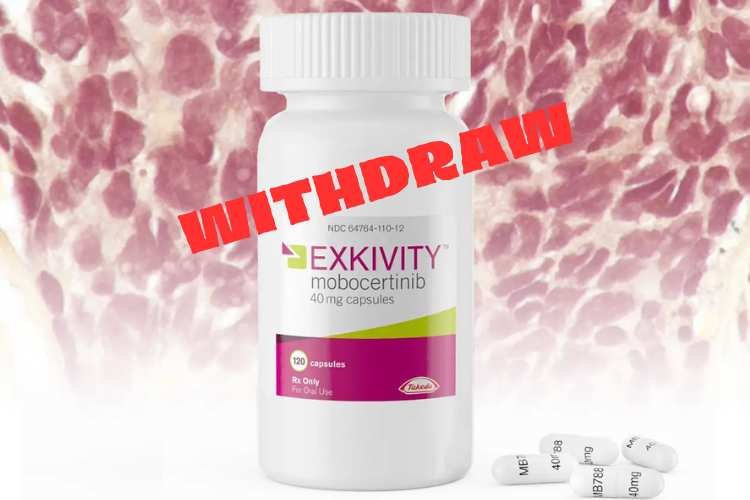Following a disappointing outcome in a confirmatory trial earlier this year, Takeda has decided to discontinue its targeted non-small cell lung cancer (NSCLC) drug, Exkivity. The company announced its intention to collaborate with the FDA for a voluntary withdrawal of Exkivity in the United States, where the drug had received approval for certain adult NSCLC patients whose disease had progressed following platinum-based chemotherapy. Takeda is also in discussions with regulatory authorities in other countries to determine the appropriate steps for voluntary withdrawals globally.
Exkivity had initially obtained accelerated approval as a second-line treatment for NSCLC in 2021. To maintain this approval, the FDA required clinical data from a randomized trial to confirm the drug’s clinical benefit.
Also Read: J&J’s Rybrevant Combination Therapy Beats AZ’s Tagrisso In Lung Cancer Trial
However, in late July of this year, Exkivity fell short of expectations in the phase 3 Exclaim-2 trial, leading Takeda to halt the study prematurely. The trial had compared Exkivity to platinum-based chemotherapy in NSCLC patients with EGFR exon20 insertion mutations.
Takeda has committed to providing complete data from the trial at an upcoming medical meeting or through publication in a peer-reviewed journal.
Despite discontinuing Exkivity, Takeda remains dedicated to ensuring that patients currently receiving the medication can continue to access it as needed and as determined by their healthcare providers. In light of this decision, the company plans to assess and potentially revise its revenue forecast for the fiscal year 2023, concluding on March 31, 2024.
The recent setback for Exkivity came shortly after Johnson & Johnson’s competing drug, Rybrevant, demonstrated success in delaying cancer progression in first-line NSCLC patients. Both drugs had received accelerated FDA approvals in 2021 based on tumor shrinkage data from single-arm trials.
Also Read; J&J’s Rybrevant Beats Chemo In Lung Cancer Patients Who Failed Tagrisso
The FDA’s oncology division has recently taken a more stringent stance on accelerated approval regulations. While it had previously maintained certain accelerated approvals due to unmet medical needs, the success of Rybrevant in a phase 3 trial made this argument less relevant in Exkivity’s case.
Exkivity had been one of Takeda’s growth drivers and launch products in its oncology portfolio, alongside the ALK lung cancer medication Alunbrig. The company had projected peak sales of Exkivity in the range of $300 million to $600 million. In the 12 months ending in March, Exkivity generated sales of 3.7 billion Japanese yen (approximately $26 million).





























